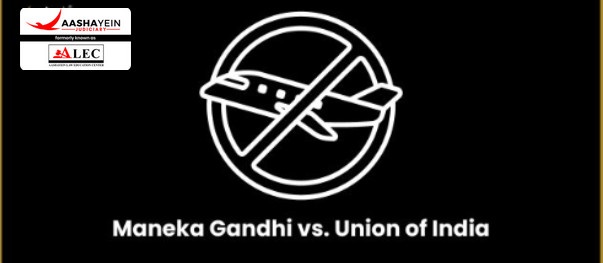This case revolves around the petitioner’s challenge to the government’s decision to impound her passport under Section 10(3)(c) of the Passports Act, 1967, citing "public interest" as the reason. The petitioner was informed by the Regional Passport Officer, Delhi, to surrender her passport but was denied access to the reasons behind the government's decision. Dissatisfied with the government's refusal to disclose the reasons, she filed a petition questioning both the legality of the impounding action and the refusal to provide the reasoning. The case raises significant constitutional issues, including the connection between Articles 14, 19, and 21, the scope of “Procedure Established by Law,” and the extent to which the right to travel abroad falls under Article 21. The Court's examination focused on whether the government's action was arbitrary or unreasonable, and whether it violated fundamental rights guaranteed under the Constitution.
Facts of the Case
The petitioner held a valid passport issued under the Passports Act, 1967. Later, she received a letter from the Regional Passport Officer, Delhi, informing her that the Government of India had decided to impound her passport under Section 10(3)(c) of the Act. The reason cited was "public interest," and she was asked to surrender her passport.
In response, the petitioner requested the Officer to provide her with a copy of the reasons behind this decision. However, the Ministry of External Affairs replied that the Government had decided "in the interest of the general public" not to share the reasons with her.
Dissatisfied with this response, the petitioner filed the present petition, challenging two actions of the Government:
- The decision to impound her passport, and
- The refusal to provide her with the reasons for impounding her passport.
You can also read the Blog by visiting [Blog]
For more information, visit [Aashayein Enquiry Section]
Issues before the Court
- Is there a connection between Articles 14, 19, and 21?
- What is the scope of “Procedure Established by Law”?
- Does the right to travel abroad fall under Article 21?
- Can a law that takes away the Right to Life be justified?
Arguments in the Court
The Government’s action was challenged on several legal grounds:
- The order against the petitioner was motivated by bad faith (mala fides) and was not based on legitimate reasons.
- Section 10(3)(c) of the Passport Act was unconstitutional as it allowed authorities to impound a passport "in the interests of the general public," a phrase that was vague, undefined, and excessively broad, violating the right to equality under Article 14 of the Constitution.
- The impounding order was issued without giving the passport holder an opportunity to be heard, making it null and void. If Section 10(3)(c) was interpreted to exclude the right to a hearing, it would be arbitrary and violate Article 14.
- The act of impounding a passport restricted the fundamental rights guaranteed under Article 19(1)(a) (freedom of speech & expression) and Article 19(1)(g) (right to occupation or business), as the right to travel abroad is linked to these freedoms.
Analysis of the Court
In simple terms, this case emphasized that fundamental rights in the Constitution are interconnected and cannot be treated as separate, isolated rules. This was different from the earlier Gopalan’s case (1950), where the Court had viewed each fundamental right as independent. Here, the Court said that just because one right is satisfied, it doesn’t mean other rights can be ignored. For example, a procedure might meet the technical requirements of one right (like Article 21, which protects life and personal liberty), but it must also be reasonable and fair to comply with Article 14, which guarantees equality and prohibits arbitrariness. The Court stressed that natural justice (fairness) must be part of any procedure, and this principle applies equally to both administrative and quasi-judicial actions.
In this case, the law under Section 10(3) allowed the Central Government to take actions like revoking a passport without giving the person a right to appeal or providing reasons, if it believed doing so was necessary for India’s sovereignty, security, foreign relations, or public interest. The Court ruled that as long as the government followed the proper legal procedure without any deviation, its actions could not be challenged, even if they seemed harsh or unfair. This shows how important it is for laws and procedures to be reasonable and just, even when dealing with administrative decisions.
Concluding Remark
In this case, the court addressed the allegation of mala fides, where it was argued that an order was made based on confidential information that the person was leaving the country. The court clarified that while the government has the power to act in specific circumstances under a statute, this does not give it unlimited discretion. Every action taken must align with both the statutory authority and fundamental rights. Parliament does not intend to give authority to act in a way that violates fundamental rights. The court also ruled that the right to go abroad is not covered under the fundamental rights of freedom of speech and expression under Article 19(1)(a) and (g). The court applied the "doctrine of direct and inevitable effect," meaning it examined whether the right to travel abroad is essential to the fundamental rights listed in the Constitution. Since this was not proven, the court held that the right to leave the country is not automatically included in the freedom of speech and expression.

